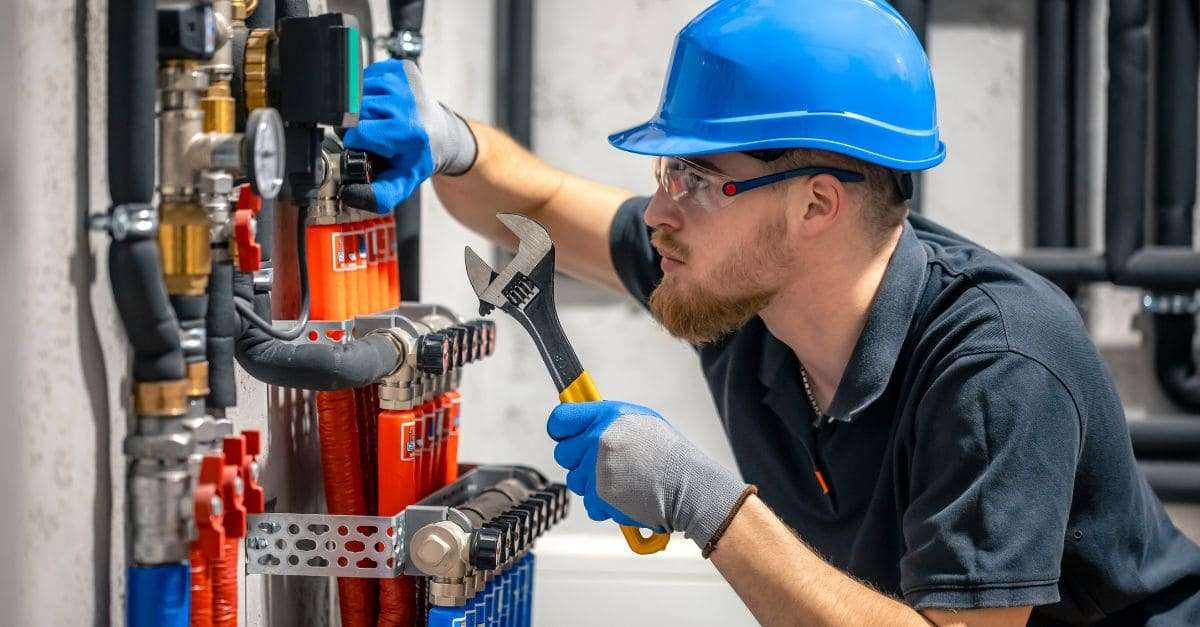Plumbing is one of the most vital components of modern construction projects, yet it often carries complex cost variables that demand precise planning. From residential builds to large-scale commercial developments, plumbing estimating ensures that contractors account for every pipe, fixture, and labor hour. Without proper forecasting, projects can experience costly overruns, delays, or even compliance issues.
In this article, we explore the role of plumbing estimating in construction, its advantages, and its connection with other estimating services to create smoother, more profitable projects.
What Is Plumbing Estimating?
Plumbing estimating is the process of forecasting all materials, labor, and costs required for plumbing systems within a construction project. A detailed plumbing estimate typically includes pipe sizes, fittings, fixtures, insulation, water supply lines, drainage systems, and installation labor.
Contractors often use a plumbing cost calculator or a standardized plumbing estimate template to streamline the process. However, professional plumbing estimating services go beyond templates by providing customized estimates tailored to project type, location, and complexity.
Why Plumbing Estimating Is Crucial in Construction
Budget Control and Cost Accuracy
A single miscalculation in plumbing estimation can quickly lead to significant cost escalations. Accurate plumbing estimates ensure that projects stay within budget, protecting profitability. Combining plumbing estimates with labor estimating also ensures realistic workforce allocation.
Timely Project Delivery
Plumbing work directly impacts critical milestones. Delays in installation may affect subsequent trades such as drywall estimating services or flooring estimating services. Proper estimation allows contractors to plan resources and schedules effectively, reducing bottlenecks.
Resource Efficiency
Plumbing estimating minimizes material wastage by accurately forecasting pipe lengths, fixture counts, and associated supplies. Integrating plumbing estimates with thermal moisture protection takeoff services helps optimize waterproofing and insulation requirements.
Tools and Methods for Plumbing Estimation
Manual Templates and Calculators
While traditional tools like a plumbing estimate template or plumbing quotation sheets are useful, they often lack precision for complex projects.
Digital Estimating Software
Modern plumbing estimation often relies on software that automates material takeoffs, applies local pricing, and adjusts for design variations. This approach is particularly effective when paired with advanced BIM estimating services, which integrate 3D models for greater accuracy.
Professional Estimating Firms
Engaging professional estimating consultants offers the advantage of industry expertise, tailored solutions, and integration with related trades such as electrical estimating services and mechanical estimating services.
Plumbing Estimating Across Different Project Types
Residential Construction
For home builds, plumbing estimating focuses on kitchens, bathrooms, and utility connections. Professional residential construction estimating ensures accurate forecasts for fixture counts, hot water systems, and drainage.
Remodeling Projects
Renovation projects require careful planning to integrate new systems with existing ones. Using Home Remodeling Cost Estimation Services alongside plumbing estimates ensures homeowners avoid unexpected surprises during upgrades.
Commercial and Industrial Projects
Large-scale projects, such as hospitals or manufacturing plants, demand comprehensive plumbing systems. Accurate estimation supports commercial construction estimating and industrial construction estimating by forecasting specialized requirements such as fire suppression systems or chemical drainage.
Integration of Plumbing Estimating with Other Trades
Plumbing systems rarely operate in isolation. They must coordinate with other components of construction:
- Roofing estimating services help align plumbing vent penetrations.
- Exterior finishing services rely on plumbing estimates for facade penetrations.
- Painting estimating services depend on accurate wall finishing timelines after plumbing installations.
- Landscaping estimating services may include irrigation and outdoor water connections supported by plumbing estimates.
This interdependency highlights the value of a holistic estimating approach.
Enhancing Bids with Plumbing Estimating
Plumbing estimates are also essential for competitive bidding. Contractors who use detailed forecasts have a higher chance of winning contracts while maintaining profitability. Integrating plumbing estimation with bid management services or an audit bid process enhances transparency and credibility.
For contractors working in specific regions, localized solutions such as construction cost estimating services NYC, construction estimating services Texas, construction takeoff services California, and construction estimating services Florida adjust for local pricing and code requirements.
Conclusion
Plumbing estimating plays a vital role in successful construction project planning. It ensures financial accuracy, resource efficiency, and smooth scheduling across interconnected trades. Whether for residential, commercial, or industrial projects, accurate plumbing estimating services support contractors in controlling costs, reducing risks, and delivering projects on time.
By investing in professional estimating solutions, contractors enhance their bids, strengthen credibility, and gain a competitive advantage in today’s evolving construction industry.
FAQs
- What is included in a plumbing estimate?
A plumbing estimate typically includes materials such as pipes and fixtures, labor costs, equipment, and contingency factors. - How accurate is a plumbing cost calculator compared to professional services?
While a plumbing cost calculator provides quick estimates, professional services offer more accurate, project-specific forecasts. - Can plumbing estimating reduce project delays?
Yes, accurate estimates ensure materials and labor are scheduled properly, minimizing delays in plumbing installation. - Why is plumbing estimation critical for commercial projects?
Commercial plumbing systems are complex and require precise forecasting to meet building codes and performance requirements. - How does plumbing estimating interact with other trades?
It coordinates with trades like electrical, mechanical, and finishing services to ensure smooth project execution.

Leave a Comment